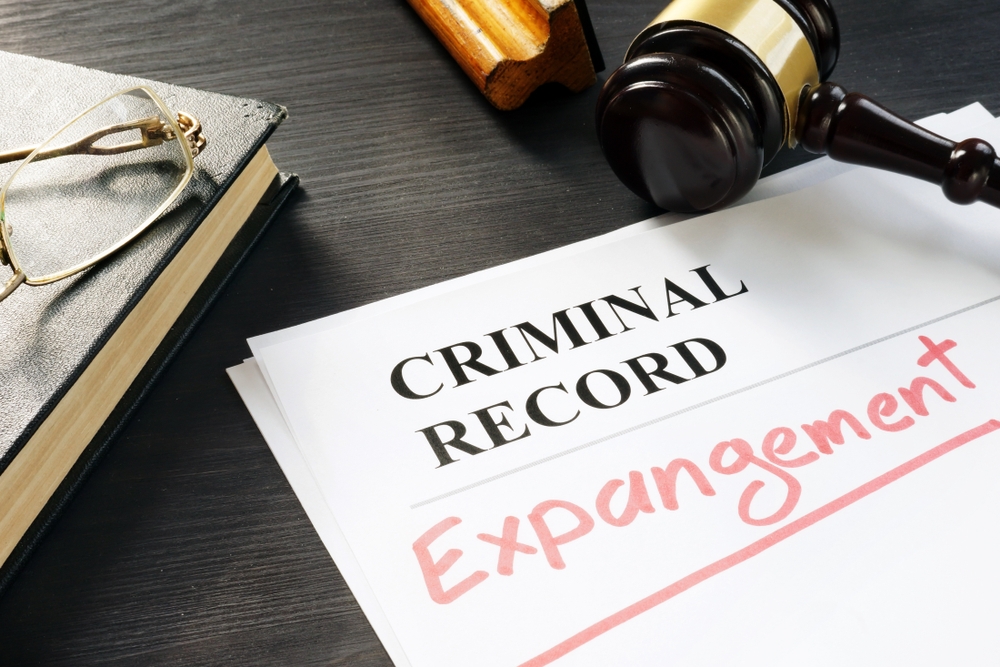
A felony conviction in California can impact nearly every aspect of your life. From finding a job to applying for housing or professional licensing, your record often follows you long after your sentence ends. The good news is that California law allows many people with felony convictions to seek expungement, a process that can help clear your record and give you a fresh start.
But one common question we hear at The Law Offices of Christopher Chaney is this: Can you expunge a felony conviction in California without going back to court?
The short answer is: sometimes. While most expungements require court approval, many cases can be handled by your attorney without you ever stepping foot back in a courtroom.
Understanding What Expungement Means in California
Expungement is a legal process under California Penal Code §1203.4 that allows certain convictions to be dismissed from your record. Once granted, your case is officially reopened, the guilty plea or verdict is set aside, and the case is dismissed in the interests of justice.
It’s important to note that expungement doesn’t completely erase your record, but it changes it to show that your case was dismissed. This distinction can make a major difference when you apply for jobs, housing, or professional licenses.
Who Qualifies to Expunge a Felony Conviction in California?
Not everyone with a felony conviction is eligible for expungement. To qualify, you generally must meet the following criteria:
- You successfully completed probation for your felony offense.
- You did not serve time in state prison, or if you did (as of legislative changes effective January 1, 2023, under Senate Bill No. 731), your conviction did not require registration as a sex offender.
- You have completed any waiting periods (commonly, two years post-completion of your sentence) required in your specific situation.
- You are not currently charged with a crime, serving a sentence, or on probation for another offense.
Even if your case involved a felony and a state prison sentence, you may still qualify for expungement in many circumstances under updated laws. However, it’s important to note that courts have considerable discretion over whether to grant your expungement petition under these circumstances.
When You Don’t Have to Go Back to Court
In many cases, your attorney can handle the expungement process entirely on your behalf, including filing the necessary paperwork, submitting declarations, and communicating with the court and district attorney.
If your case meets the following conditions, you might not have to appear in court:
- The prosecutor does not object to your petition.
- You have no new criminal charges or pending cases.
- Your probation was completed without violations.
- The paperwork and court filing meet all local procedural requirements.
When these criteria are met, the judge may grant your expungement based solely on the petition, supporting documents, and your attorney’s written arguments.
When You Might Need to Go to Court
Some cases, however, do require a court appearance, especially when there are disputes or complicating factors.
You’ll likely need to appear in person if:
- The district attorney objects to your expungement.
- You had probation violations or served time in state prison.
- The judge wants to hear directly from you about your rehabilitation.
- You’re asking for a felony reduction before seeking expungement.
In these situations, your attorney will represent you and prepare you for any questions the judge might ask about your employment, conduct since the conviction, or community involvement.
Steps to Expunge a Felony in California
While the process can vary slightly by county, here’s a general overview of how felony expungement works in California:
Review Eligibility
Your attorney will first review your case file to confirm whether your felony qualifies for expungement. Some offenses, such as serious sex crimes against minors, are not eligible.
File a Petition for Dismissal (Form CR-180)
This form, along with the Order for Dismissal (Form CR-181), is filed in the court where your conviction occurred.
Serve the District Attorney and Probation Department
A copy of your petition must be served on the prosecuting agency and sometimes the probation office to allow them time to respond.
Court Review
The judge will review your petition, your criminal history, and any objections from the district attorney.
Hearing or Decision
If no objections are raised, the court may approve your expungement without a hearing. If a hearing is required, your attorney will represent you before the judge.
Court Order Issued
Once approved, the court updates your record to reflect that the conviction has been dismissed. You can then legally state that you were not convicted of that crime in most circumstances.
Similar Post: Understanding California’s Three Strikes Law and Its Impact on Your Case
Do You Need a Lawyer for a California Expungement?
Technically, you can file for expungement on your own. However, the process involves complex paperwork, strict deadlines, and detailed understanding of eligibility laws that differ between counties.
Working with an experienced California criminal defense lawyer ensures that:
- Your petition is properly filed and supported by the right evidence.
- All legal and procedural requirements are met.
- You have someone to respond to any objections from the district attorney.
- You maximize your chances of having your record cleared without going to court.
At The Law Offices of Christopher Chaney, our team has helped clients throughout Los Angeles expunge felony convictions efficiently, often without the need for court appearances.
Benefits of Expunging a Felony Conviction
Clearing your record can make a life-changing difference. Benefits include:
- Improved job prospects since employers can no longer see a conviction on background checks.
- Better housing opportunities.
- Eligibility for professional licenses and state certifications.
- Peace of mind and confidence knowing you’ve moved forward.
However, an expungement does not restore gun rights or remove a conviction from your driving record if the offense involved a vehicle. It also won’t automatically erase the record from federal background checks, but it significantly improves your standing in most situations.
Similar Post: What to Do If You're Falsely Accused of Domestic Violence in California
Frequently Asked Questions About Felony Expungement
1. How long does the expungement process take?
Typically, it takes between two to four months, depending on the court’s workload and whether a hearing is required.
2. Will my expunged felony still appear on background checks?
Depending on the background check needed for a job, it may still appear. However, it will be shown as “dismissed” rather than “convicted.” Employers in California are prohibited from discriminating based on expunged convictions.
3. Can I expunge more than one conviction?
Yes. Each conviction must be addressed separately, but multiple expungements can be filed concurrently.
Contact The Law Offices of Christopher Chaney to Learn More About California Felony Expungements
If you’ve served your sentence and turned your life around, you deserve a second chance. The Law Offices of Christopher Chaney can help you determine whether you qualify to expunge a felony conviction in California and whether your case can be handled without appearing in court.
From gathering court records to filing and advocating on your behalf, our team will manage every step of the process so you can focus on moving forward with your life. Call 818-330-5198 or fill out our online contact form to schedule a confidential consultation.
Disclaimer: This blog is intended for informational purposes only and does not establish an attorney-client relationship. It should not be considered as legal advice. For personalized legal assistance, please consult our team directly.





